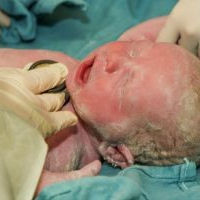
Training healthcare providers in neonatal resuscitation improves neonatal outcomes
One in ten newborn requires some resuscitative efforts at birth when signs of breathing or a heartbeat are not detected. In 2000, approximately four million newborn infants died in the first four weeks of life worldwide, with almost half of these deaths occurring on the first day. The presence of adequately trained personnel who can perform neonatal resuscitation may prevent deaths and brain injury. Numerous neonatal resuscitation programmes exist and generally include knowledge and skill-based components taught over a half- or full-day course. However, the effectiveness of these programmes in decreasing deaths or brain injury due to lack of oxygen in newborn infants has not been reviewed.
A team of Cochrane authors based in Canada, Ireland, and the US have worked with Cochrane Neonatal Group to determine whether standardized formal neonatal resuscitation training (SFNRT) programmes reduce neonatal mortality and morbidity, improve acquisition and retention of knowledge and skills, or change teamwork and resuscitation behaviour.
The team identified 14 studies: five community-based studies (187,080 deliveries) and nine mannequin-based studies (626 newborns). SFNRT compared to basic newborn care or basic newborn resuscitation, in developing countries, results in a reduction of early neonatal and 28-day mortality.
“This Cochrane Review offers important news to clinicians and researchers on the effects of SFNRT. The addition of teamwork training to SFNRT improved teamwork behaviour and decreased resuscitation duration,” said lead authors of the Cochrane Review Eugene Dempsey from University College Cork, Ireland and Mohan Pammi from Baylor College of Medicine, USA. “Future research in this area should report on neonatal morbidity, including hypoxic ischaemic encephalopathy and neurodevelopmental outcomes. Innovative educational methods that enhance knowledge and skills and teamwork behaviour should be evaluated.”
Videos of neonatal resuscitation from the American Academy of Pediatrics
